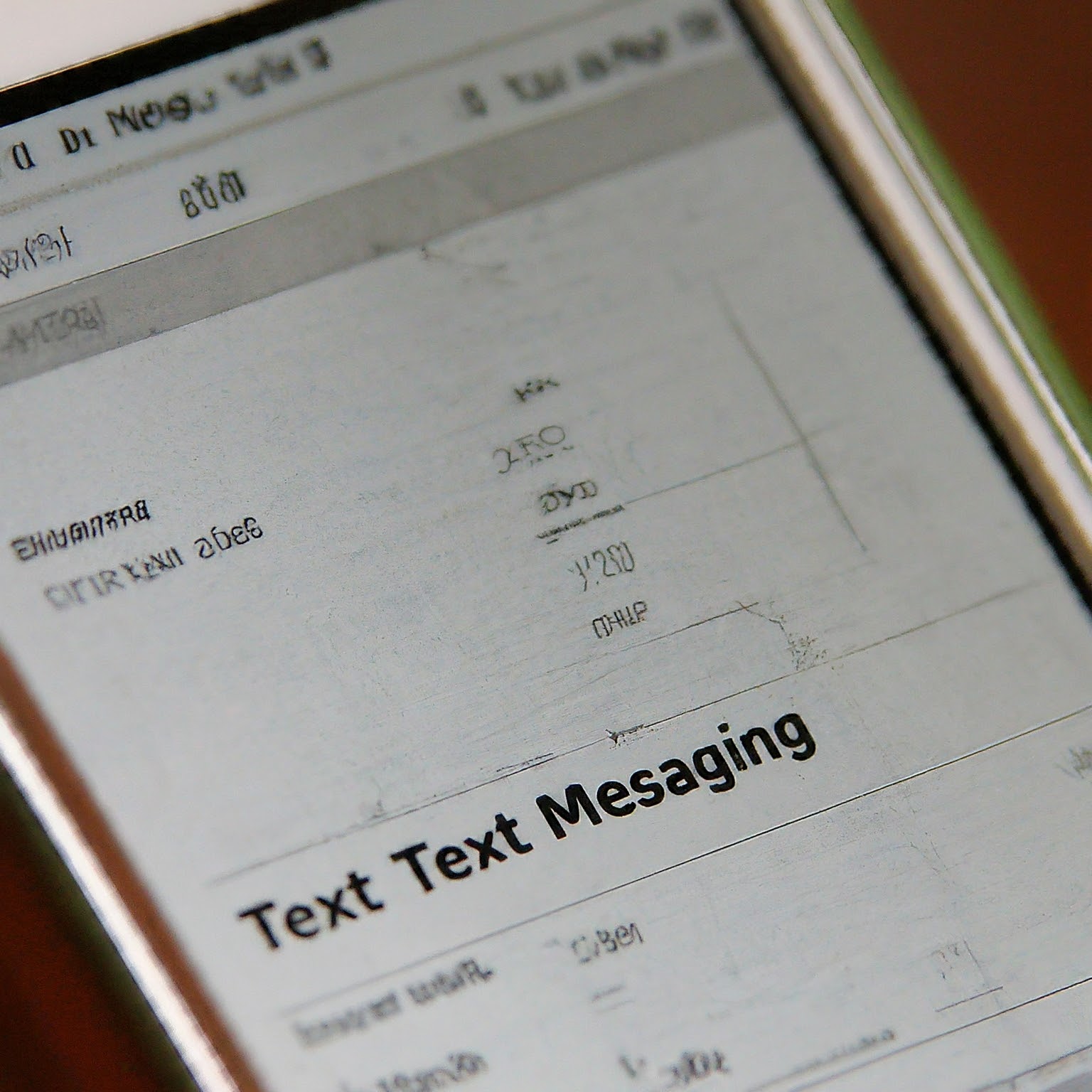In today’s digital age, text messages have become a cornerstone of communication. But what if you need to revisit a specific conversation or simply want to track your mobile usage for budgeting purposes? This comprehensive guide explores the possibility of how to view text messages on AT&T bill and offers alternative solutions for managing your text message history.

Unveiling the Reality: AT&T Bills Don’t Contain Text Message Content
While your AT&T bill offers valuable details about your mobile usage, including call logs, data usage, and plan details, it does not contain the content of your text messages. AT&T prioritizes user privacy and data storage limitations by excluding text message content from your bill.
Here’s a breakdown of what you can typically find on your AT&T bill:
Call Logs: You’ll see a list of dialed calls, received calls, and missed calls, with details like phone numbers, dates, and potentially durations.
Data Usage: This section displays information on your mobile data consumption throughout your billing cycle, including details on data used for activities like browsing or streaming.
Messaging Activity: Some AT&T plans might display basic information about your messaging activity, such as the total number of text messages sent and received during the billing cycle. However, the actual content of the messages is not included.
Understanding the Rationale Behind AT&T’s Approach
There are several key reasons why AT&T does not include text message content on your bill:
Privacy Concerns: Storing and displaying text message content raises significant privacy issues. Text messages can contain sensitive information, and AT&T prioritizes user privacy by excluding this data from your bill.
Data Storage Limitations: Storing vast amounts of text message content for millions of users would require immense storage capacity. This would impact AT&T’s infrastructure and potentially increase billing costs.
Focus on Core Services: AT&T’s primary function is to facilitate communication by delivering messages. Once delivered, the content itself falls outside their core service of transmission.
Alternative Solutions for Managing Your Text Message History: Beyond How to View Text Messages on AT&T Bill
Since AT&T bills don’t contain text message content, alternative solutions are necessary to manage your text message history. Here are some options to consider:
Third-Party Messaging Apps: Certain messaging apps offer features that allow users to back up their chat history. These backups might be stored locally on the user’s device or in the app’s cloud storage, depending on the app’s functionalities and user settings.
Manual Backup: If you anticipate needing to access past text messages for an extended period, you can explore manual backup options. This might involve copying and pasting text conversations into a document or note-taking app for safekeeping. However, this method can be cumbersome and time-consuming.
Screenshotting: While not ideal for extensive conversations, taking screenshots of important text messages can be a quick way to preserve specific snippets for future reference.
Important Considerations for Alternative Solutions
When choosing a method for managing your text message history, consider these factors:
Security: Ensure the chosen method for storing text message backups prioritizes security. Password protection or encryption can be crucial safeguards.
Accessibility: Consider how easily you can access the backed-up messages when needed. Cloud storage might offer greater accessibility from various devices compared to local backups on your phone.
Storage Capacity: If using a cloud storage solution, be mindful of storage limitations and associated costs, especially for large volumes of text message data.
Legal Requirements and Court Orders: A Different Scenario
In specific legal situations, a court order or subpoena might compel AT&T to provide historical data related to your account, potentially including metadata associated with text messages (e.g., timestamps, phone numbers involved). However, retrieving the actual content of past text messages through legal procedures is challenging and not always guaranteed. Consulting with an attorney is recommended for guidance in such scenarios.
Conclusion: Moving Forward Without How to View Text Messages on AT&T Bill
While AT&T bills don’t offer a way to view text message content, exploring alternative solutions like third-party messaging apps with backup features, implementing manual backups, or utilizing secure cloud storage options can provide some degree of control over your text message archive. Remember, the chosen method should prioritize security, accessibility, and storage capacity to effectively manage your text message history. Understanding these limitations and exploring alternative solutions empowers you to take charge of your mobile communication records.


